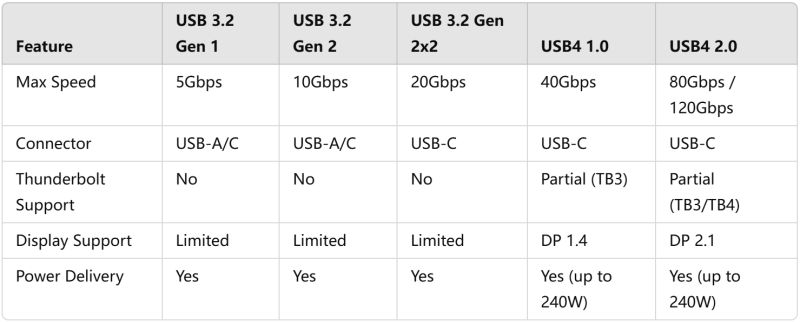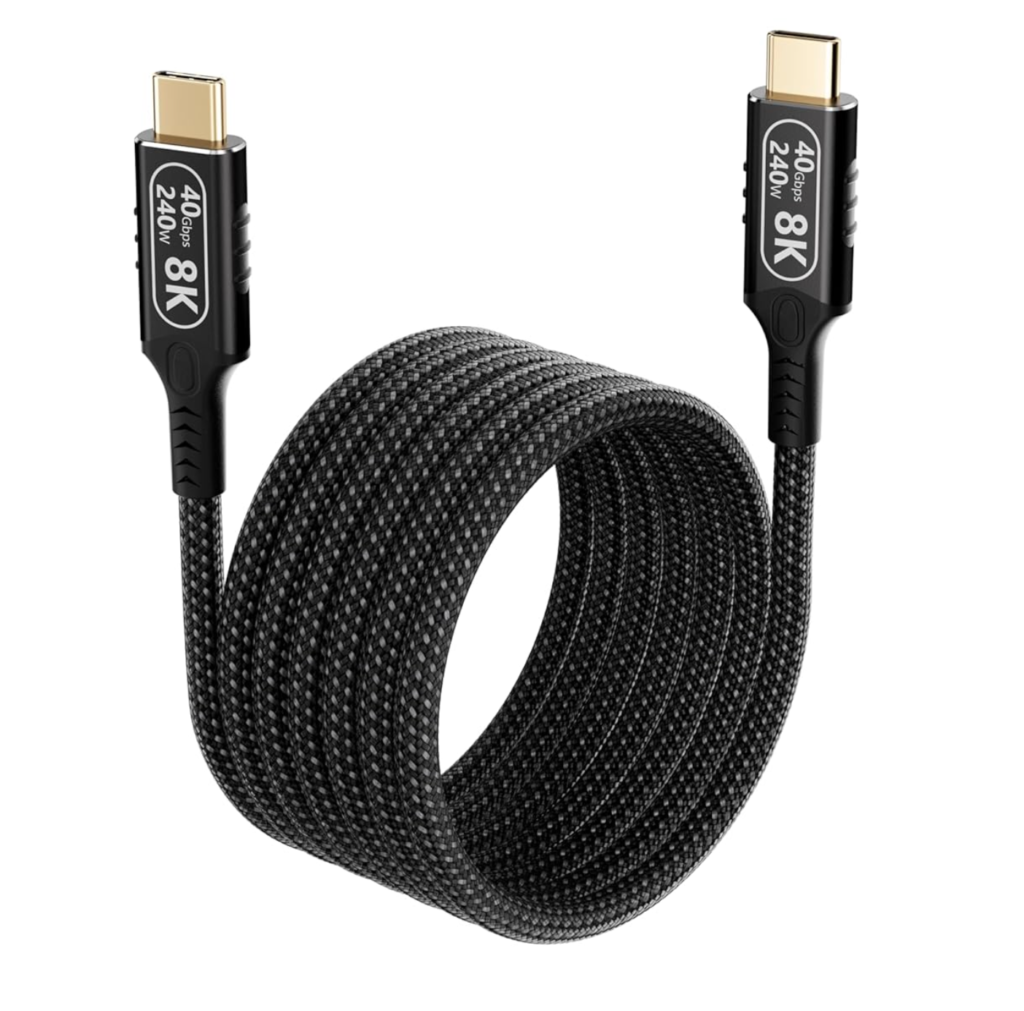USB4 Overview
USB4 is the latest generation of the Universal Serial Bus (USB) standard, designed to improve performance, simplify connectivity, and increase compatibility with Thunderbolt devices. It is based on the Thunderbolt 3 protocol and offers significant improvements over previous USB versions.
🌈 Key Features of USB4
1️⃣ Higher Data Transfer Speeds
- USB4 Version 1.0: Supports 20Gbps and 40Gbps speeds
- USB4 Version 2.0: Supports 80Gbps and a new asymmetric mode that allows 120Gbps (3-lane Tx, 1-lane Rx)
2️⃣ Uses USB Type-C Connector
- USB4 exclusively uses the USB-C connector (no Type-A support)
- Supports USB Power Delivery (PD) for faster charging (up to 240W with USB PD 3.1)
3️⃣ Thunderbolt 3/4 Compatibility
- USB4 supports Thunderbolt 3/4, meaning devices can work with Thunderbolt accessories (if enabled by manufacturer)
4️⃣ Backward Compatibility
- Compatible with USB 3.2, USB 2.0, and Thunderbolt 3 devices
- Actual speed depends on the connection and device
5️⃣ Efficient Bandwidth Sharing
- Supports tunneling of PCIe, DisplayPort, and USB data over a single cable
- Dynamically allocates bandwidth
- Can support dual 4K displays or a single 8K display via DisplayPort Alt Mode
6️⃣ Improved Daisy-Chaining
- Like Thunderbolt, USB4 allows daisy-chaining multiple devices, reducing the number of cables needed
🌈 USB4 Naming and Branding
USB-IF has changed the naming approach to emphasize performance:
- USB4® 40Gbps (USB4 1.0 at 40Gbps)
- USB4® 80Gbps (USB4 2.0 at 80Gbps)
- USB4® 120Gbps (USB4 2.0 asymmetric mode)
Comparison Table: USB4 vs. Older USB Versions

💡 Who Needs USB4?
- Tech Enthusiasts and Early Adopters
- Content Creators and Professionals
- Gamers
- Professionals with High-Performance Workstations
- Thunderbolt 3/4 Users
- Users with High-Speed Storage Devices
- People with Multi-Device Setups
- Laptop Users with Limited Ports
- IT Professionals and System Administrators
- Users of Future-Proof Devices
USB4 is a powerful, high-speed, and flexible standard that combines the best of USB and Thunderbolt technologies.
If you’re developing USB4 products (like hubs or docking stations), ensuring proper branding and Thunderbolt compatibility will be key to market success.

